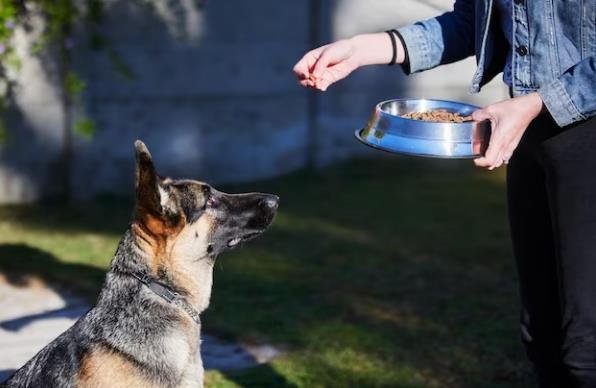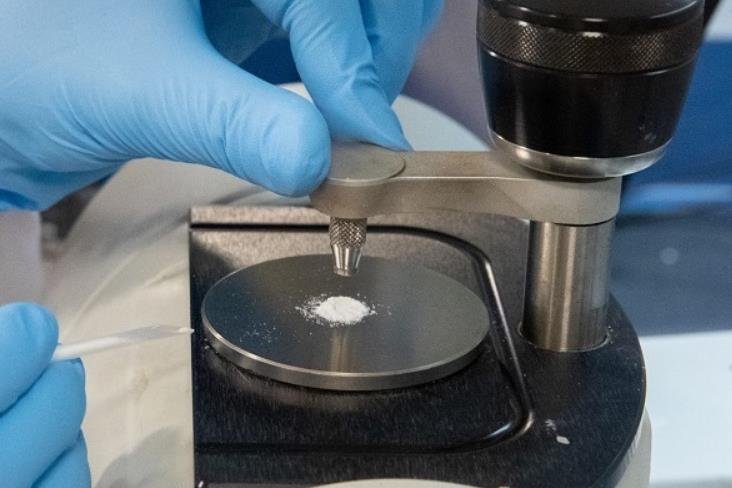As a dog owner, it is crucial to understand what your furry friend can and cannot eat. Dogs have different dietary needs compared to humans, and some foods that we enjoy may not be safe for them. One such food item that often brings up questions is mushroom soup. Is it safe for dogs? This article aims to shed light on this topic and guide you on the best dietary choices for your pet.
You might be asking yourself, “Can dogs have mushroom soup?” The straightforward answer is, it depends on the type of mushroom and the ingredients used in the soup. Certain kinds of mushrooms are safe for dogs to consume, while others can be toxic. Just like with any other food you give to your dog, moderation and proper preparation are key. So, let’s dive deeper into this topic and learn how to make the best dietary decisions for your beloved pet.
What You Need to Know About Dogs and Their Diet
Understanding your dog’s dietary needs is fundamental to ensuring their health and well-being. Dogs are primarily carnivores but can consume a variety of other foods, including fruits, vegetables, and in some cases, mushrooms. However, not all foods that are safe for human consumption are safe for dogs. For instance, certain types of mushrooms can be harmful to dogs. Therefore, understanding the specifics of what dogs can eat becomes crucial, especially when considering something like mushroom soup.
Delving deeper into the canine diet, it’s important to note that dogs require a balanced mix of proteins, carbohydrates, fats, vitamins, and minerals. While a large portion of their diet consists of meat, they can also benefit from non-meat sources, such as certain vegetables and grains. Mushrooms, often used in human diets for their nutritional value, fall into a gray area. Some mushroom varieties are safe for dogs, while others can be toxic, which makes the question of whether dogs can have mushroom soup a bit more complex.
Recent studies show that approximately 50% of dogs’ diets should consist of protein, with the rest being a mix of carbohydrates and fats. But when it comes to mushrooms, it’s not just about the nutritional values. The safety of mushrooms for dogs depends on the type of mushroom, how it’s prepared, and the quantity consumed. Therefore, if you’re considering adding mushroom soup to your dog’s diet, it’s essential to do thorough research and consult with a professional to ensure it’s safe.
Understanding the Role of Mushrooms in a Dog’s Diet
Mushrooms can be a source of nutrition for dogs if used appropriately and carefully. They can provide proteins, vitamins, and antioxidants that can be beneficial for your pet’s health. However, the role they play in a dog’s diet is dependent on the type of mushroom, as some can be harmful or even fatal if consumed by dogs.
While some mushrooms like white button mushrooms, cremini, or portobello mushrooms are generally safe for dogs, others like death caps, fly agaric, or autumn skullcap can cause serious health issues. Symptoms of mushroom poisoning can include vomiting, diarrhea, salivation, weakness, and in severe cases, seizures or coma. Therefore, it is crucial to know which mushrooms are safe and how to properly prepare them before including them in your dog’s diet.

Can Dogs Have Mushroom Soup: A Detailed Guide
The role of mushrooms in a dog’s diet also extends beyond their nutritional value. They can add variety to your dog’s meals, making them more appealing and enjoyable. However, given the potential risks associated with certain types of mushrooms, it is always advisable to consult with a veterinarian or a pet nutritionist before introducing them into your pet’s diet. This can ensure that your dog gets the benefits of mushrooms without any of the potential harm.
The Pros and Cons of Feeding Your Dog Mushroom Soup
Feeding your dog mushroom soup can have both advantages and disadvantages, depending on various factors like the type of mushroom used, the ingredients in the soup, and the quantity served. Understanding these pros and cons can help you make an informed decision about incorporating mushroom soup into your dog’s diet.
On the positive side, mushrooms are packed with nutrients like protein, fiber, and vitamins. They can boost your pet’s immune system and aid digestion. Additionally, mushroom soup could add variety to your dog’s meals, making them more appealing. Mushroom soup can also be a source of hydration, especially for dogs that don’t drink enough water.
However, it’s not all positives. The major concern with feeding dogs mushroom soup is the potential toxicity of certain mushroom varieties. Some mushrooms are poisonous for dogs and can cause serious health issues, even death. Another downside is the potential for allergic reactions. Just like humans, dogs can also be allergic to mushrooms. Lastly, mushroom soup often contains other ingredients like onions, garlic, and high levels of sodium, which are not suitable for dogs.
Therefore, while mushroom soup has its benefits, it’s crucial to consider the potential risks and consult with a veterinarian before introducing it into your dog’s diet.
How to Safely Incorporate Mushrooms in Your Dog’s Meals
Introducing mushrooms into your dog’s diet can be beneficial for their health, but it must be done with caution. The key is to ensure that you’re feeding them the right kind of mushrooms in the right way. Here are some steps to safely incorporate mushrooms into your dog’s meals.
Step 1: Choose the Right Kind of Mushrooms: Stick to store-bought mushrooms like cremini, portobello, or white button mushrooms. These are generally safe for dogs. Avoid wild mushrooms, as these can be toxic.
Step 2: Cook the Mushrooms: Raw mushrooms can be hard for dogs to digest. Always cook the mushrooms before giving them to your dog. Cooking also helps to break down any potential toxins.
Step 3: Serve in Moderation: Start by introducing a small amount of mushrooms into your dog’s diet and watch for any adverse reactions. If your dog seems to handle it well, you can gradually increase the amount.
Step 4: Avoid Extra Ingredients: When preparing mushrooms for your dog, avoid adding ingredients like onions, garlic, or excessive salt, which can be harmful to dogs.
Step 5: Consult Your Vet: Before making any major changes to your dog’s diet, always consult with your vet. They can provide guidance based on your dog’s specific health needs and dietary requirements.
By following these steps, you can safely introduce mushrooms into your dog’s meals while minimizing any potential risks. Remember, every dog is unique, so what works for one might not work for another. Always observe your dog’s reaction to new foods and adjust their diet accordingly.
In-Depth Look at Mushroom Soup and Its Effects on Dogs
The effects of mushroom soup on dogs can vary greatly depending on several factors. These include the type of mushrooms used in the soup, the other ingredients present, and the individual dog’s health and dietary needs. While some dogs may benefit from the nutrients found in certain mushrooms, others may experience adverse reactions, ranging from mild discomfort to severe health issues.
Nutritional Value of Mushrooms for Dogs
Mushrooms are rich in protein, fiber, and various vitamins and minerals that can contribute positively to a dog’s diet. They also contain antioxidants that can boost a dog’s immune system and promote overall health. However, it’s important to note that these benefits apply to safe, edible varieties of mushrooms only.
- Protein: Mushrooms are a good source of protein, an essential nutrient for dogs.
- Fiber: The fiber content in mushrooms can aid digestion and promote gut health.
- Vitamins and Minerals: Mushrooms contain various vitamins and minerals, including B vitamins and selenium.
- Antioxidants: Antioxidants in mushrooms can help protect against cell damage and boost the immune system.
Potential Risks and Side Effects
Despite their potential benefits, mushrooms can also pose risks to dogs. Certain types of mushrooms are toxic to dogs and can cause a range of symptoms from gastrointestinal upset to severe neurological problems. Additionally, mushroom soup often contains other ingredients like onions, garlic, or high salt content, which aren’t suitable for dogs.
- Toxicity: Certain types of mushrooms are poisonous to dogs and can lead to serious health issues.
- Allergies: Like humans, dogs can also be allergic to mushrooms. Symptoms can include itching, swelling, and difficulty breathing.
- Digestive Issues: Some dogs might have trouble digesting mushrooms, leading to stomach upset or diarrhea.
- Additional Ingredients: Many mushroom soups contain ingredients that are harmful to dogs, such as onions, garlic, and high levels of sodium.
While mushroom soup can provide certain health benefits to dogs, it’s critical to understand the potential risks and ensure that any mushrooms given to a dog are safe and properly prepared. Always consult with a veterinarian before introducing new foods into your dog’s diet.
Conclusion
In the complex world of canine nutrition, mushrooms certainly have a place. They can provide a variety of nutrients that can support your dog’s health and well-being. However, it’s crucial to remember that not all mushrooms are created equal, and some can pose serious risks to your furry friend’s health.
Making informed decisions about your pet’s diet, including the potential inclusion of mushroom soup, is key to ensuring their long-term health. Always consult with a veterinarian before introducing new foods to your dog’s diet. With careful consideration and professional guidance, you can create a diet plan that keeps your dog happy, healthy, and ready for their next adventure.
Frequently Asked Questions
[faq-schema id=”1385″]
















